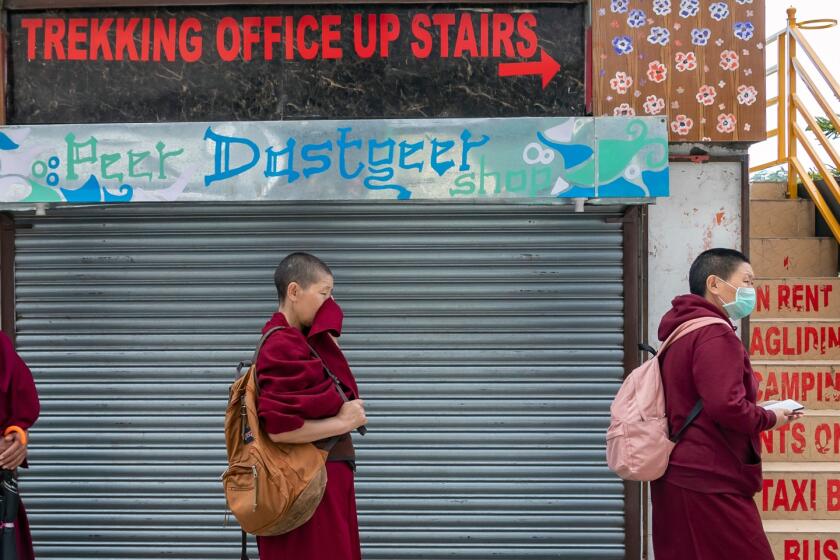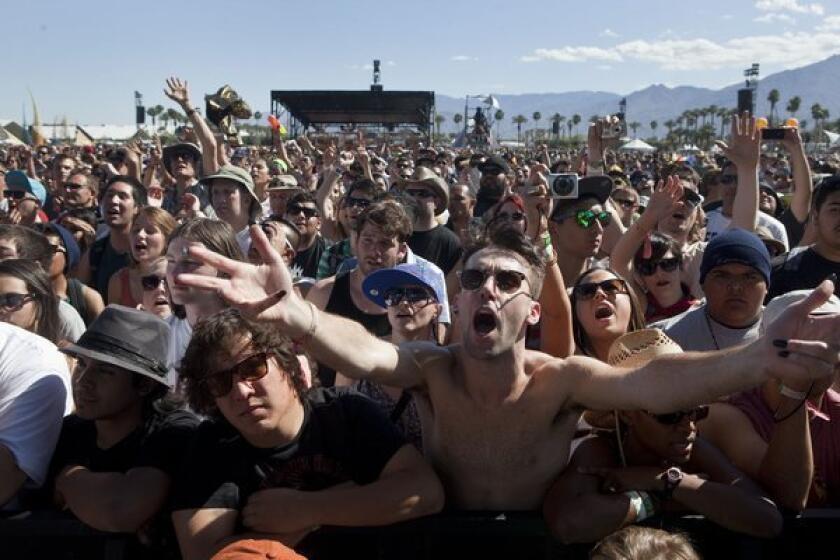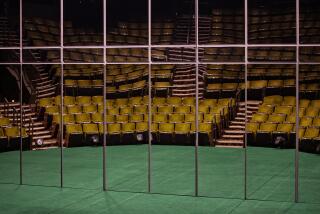You’re devastated your wedding was canceled. So is your wedding band
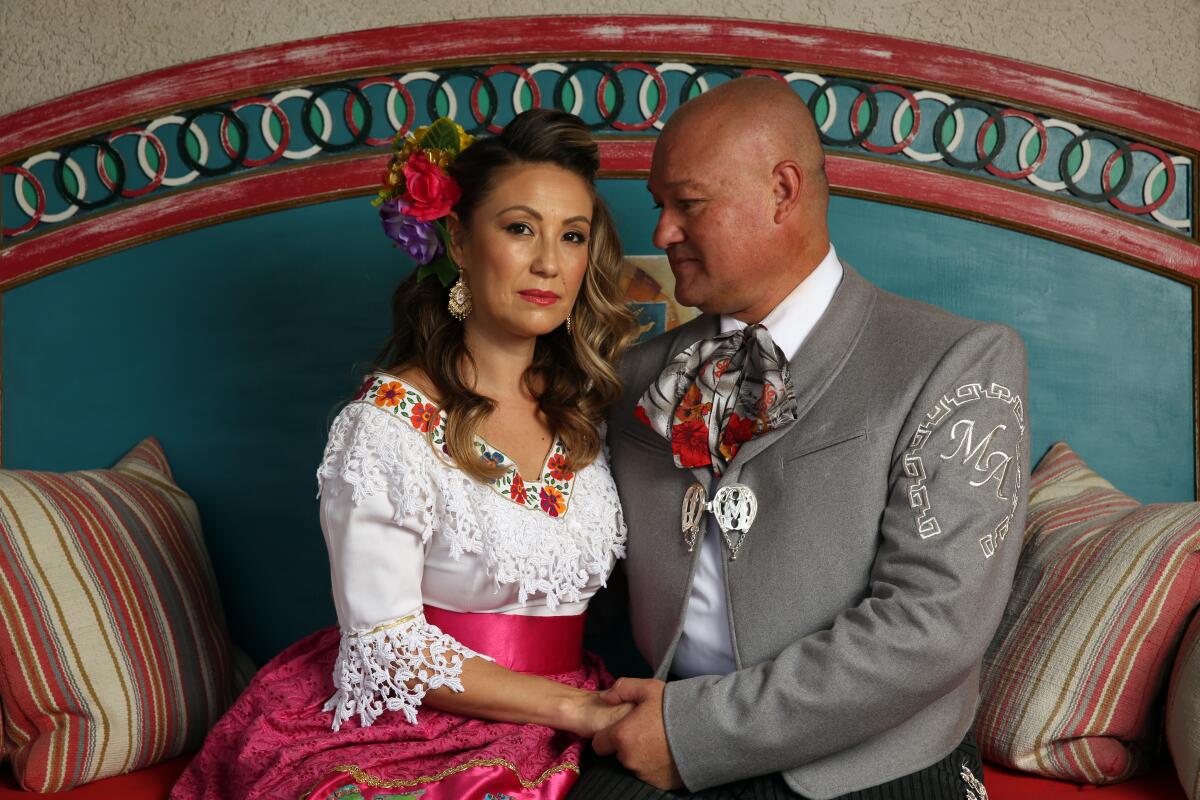
- Share via
Until a few weeks ago, if you got married in L.A. and hired a mariachi band, there was a good chance Susie Garcia’s family played you down the aisle.
The singer and bandleader has fronted her own group, the renowned all-female Mariachi Las Colibrí, for a decade and has seen generations of Mexican-American Angelenos through birthdays, baptisms, weddings and funerals. Her husband, Pepe Martinez Jr., leads his own band, Mariachi Ángeles, inspired by his father, the former leader of the legendary Mariachi Vargas de Tecalitlán.
Almost every weekend this spring, the two were booked to perform traditional music at cultural events and regale young couples at weddings across Southern California. That is, until early March, when COVID-19 turned everyone’s future around.
“We crossed out about 15 gigs in a week,” Garcia said. “Wedding after wedding, planners were calling me devastated, like, ‘What do we do?’”
The answer, as every musician and event planner soon learned, was nothing. Life would be on hold for months until the disease abated.
The Los Angeles Times will provide around-the-clock updates on COVID-19 from across Southern California and around the world.Tracking the coronavirus in California: latest numbers | Support our journalism with a subscriptionHave a question about coronavirus? Send us your questions here. | You also can sign up for our newsletterSee latest photo galleryCoronavirus updates for April 27 are here
While the virus has upended touring, shuttered venues and left artists scrambling to livestream living-room concerts, there’s much more to the live music industry than that spotlight. Gigging bands and DJs, the kind who perform at thousands of weddings, bat mitzvahs and private parties across L.A., don’t play globally broadcast all-star fundraisers but have been decimated just the same. Their livelihoods may come back eventually, but the loss of reliable gigs at the peak of wedding season has been sudden and staggering.
Fans don’t just lose a show. They lose the backing music to the most important days of their lives.
“Mariachi ties people to their family and values, that circle of life,” Garcia said. “When that is cut off, that has such an impact.”
The wedding industry isn’t the first place most look to see the fallout of COVID-19 on the music business. But it’s a huge sector that’s a clandestine livelihood for many studio and touring acts.
Around 250,000 couples tied the knot in California last year, at an average cost of $30,000 each, according to industry analyst firm the Wedding Report. Costs for live music vary widely — from a single DJ on a laptop to a dozen-strong band with horns and backing vocalists — but fees can run into the thousands for even a small group.
Compared to the financial gamble and myriad uncertainties of touring original material, playing Motown classics in a hotel ballroom is usually a steady gig. COVID-19, unfortunately, arrived just in time to vaporize those jobs.
“We’ve survived fires and mudslides at our locations, but to have every event for maybe six months all off the table, that really pulled the rug out from under us,” said Jesse Kivel, a musician and co-founder of Dart Collective, an L.A. event-music firm that’s grown into a hub for indie musicians and DJs to make money between tours. Kivel’s firm hires dozens of artists and instrumentalists and had booked around 200 weddings and events for the spring high season.
Epidemiologists and government officials agree that large-scale concerts and festivals can’t be safely held until 2021, a crushing blow.
Many of those couples will reschedule eventually when COVID-19 lets up. Jen Nordine, 28, was set to marry Keith Kniland, 37, in March at the Hideaway country club in the Coachella Valley, where Nordine’s parents had a home when she was younger. “It’s our happy place. Over Easter weekend last year, Keith and I hit the links, and on the second to last hole, he got down on one knee and told me he couldn’t live this life without me,” she said.
The San Francisco tech-industry couple booked Dart’s string ensemble for the ceremony and a Dart DJ for the after-party, after discovering the firm on wedding sites and Instagram. Dart had the “fun and classy” vibes they wanted for their music, Nordine said. Although they had to kick their wedding back nearly a year due to COVID-19, they’re staying optimistic.
“It felt selfish and trivial to be sad about it,” Nordine said. “Letting go of something you’ve dreamed of is always a tough pill to swallow, but there is nothing quite like this global pandemic to put things into perspective. If we can survive isolation together, we can survive anything.”
Other couples made it work with a little improvisation.
“With a wedding, there’s a ‘The show must go on’ feeling, but we weren’t going to risk people’s lives,” said Terry Case, 41, an engineer in Silicon Valley who had booked his wedding for late March in the Santa Cruz area. After California issued its stay-at-home orders, he and his fiancée instead threw a socially distanced ceremony with six friends in a nearby park. The band they had originally booked, Coffee Zombie Collective, still played their closing dance as new spouses.
“I’m from West Virginia, and the last song of every wedding there is John Denver’s ‘Take Me Home, Country Roads.’ Everybody screams it and dances in a circle,” Case said. “The band recorded a version and sent us a link so we could play it. It was so sweet and we were glad to still do it our own way.”
Right now, everyone in the industry is similarly scrambling. Kivel, who cut his teeth in the L.A. rock group Kisses, knows it’s tumultuous when gigs fall through.
“A lot of our touring musicians make a stable income from our gig work so they can do a tour that maybe breaks even. Ultimately, we pay the bills,” he said.
When that work ends too, it’s an enormous challenge to stay above water.
“Even if you get a good day rate [playing weddings], when you break it all down, it becomes a very normal blue-collar income,” he said. “How do you get from here to 12 or 18 months from now as performer if you don’t have other revenue streams?”
Popular artists are used to the on-and-off cycles of touring and know what to expect as far as saving for the lean months. Some acts in genres like hip-hop or pop can rely on streaming revenue for income. Others take creative approaches to livestreaming that may keep fans’ interest until shows resume.
Workaday musicians often have no such options. Some can turn to composing or online instrument lessons to supplement their income for now. But if you relied on playing for crowds, this is the first time since before the Jazz Age when all gatherings — even prosaic events like company holiday parties — are off the table due to a pandemic.
“It’s such a unique thing. Other economic downturns have occurred or there’s been socioeconomic situations like wars, riots and strikes, but none of them required specifically not gathering in spaces,” said Brian Pincus, a musician and bandleader whose family business, the Culver City-based Bob Gail Music, has booked dance and soul bands for weddings and other events in L.A. for 40 years.
“We’re hunkering down and bracing ourselves, and there are going to be cash flow issues,” he said, “but if we can ever open back up enough to have parties, it’s gonna be an insane last quarter.”
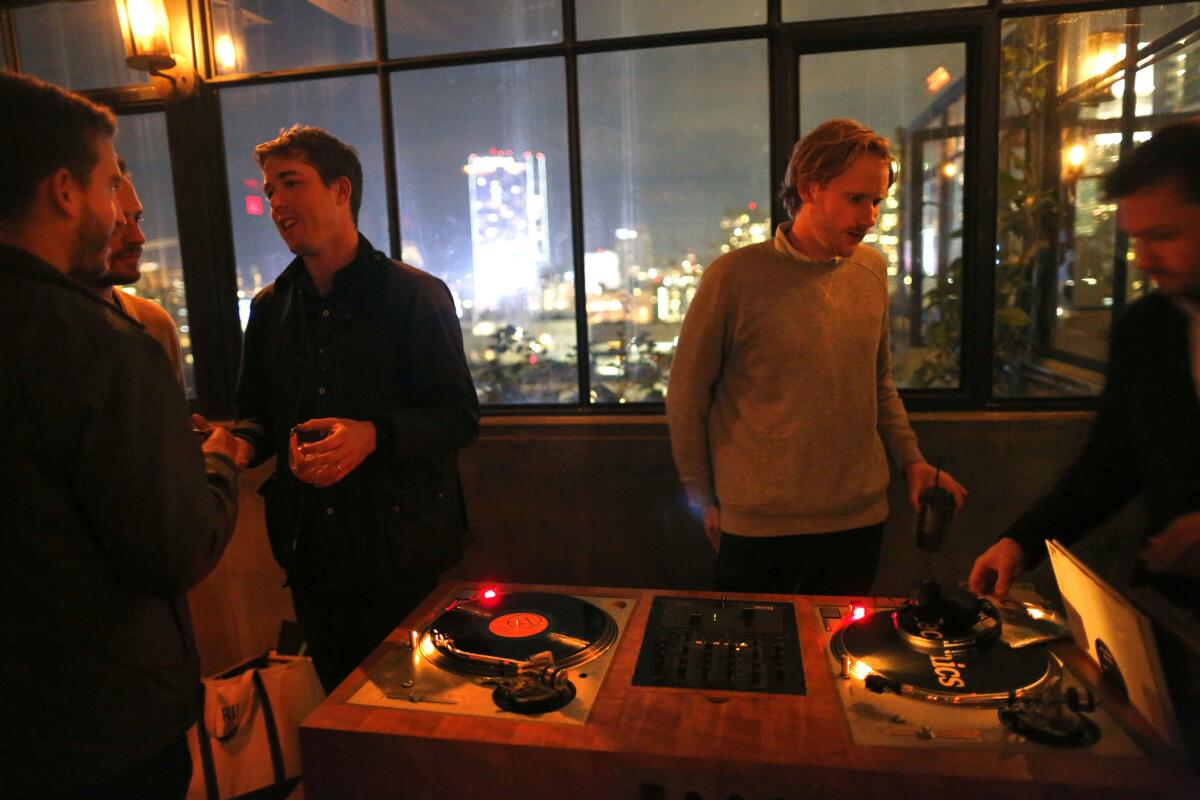
In the meantime, though, those musicians have to figure out how to make ends meet. Bruce Garnitz, a singer and guitarist who has performed with bands at weddings and events around L.A. since the ‘90s, often becomes part of his clients’ lives. He’s sometimes played the same person’s bar mitzvah and wedding decades apart.
Right now, he would be playing a couple of weddings every weekend and four or five gigs throughout the week. When hired, he pays backing musicians, lighting techs and roadies, helping many on the margins of the music industry stay afloat.
During the crisis, he’s teaching rock band classes and giving instrument lessons online. But for him and many gigging musicians he works with, replacement wages are difficult to find.
“I know how much income we generate for folks,” Garnitz said. “This is a really tough time for working and performing musicians.”
It’s even more difficult for immigrant musicians all over L.A., who face the multiple threats of the loss of their livelihood to COVID-19, the incredible difficulty of collecting unemployment benefits and a hostile attitude around immigration from the government.
“Immigrants in L.A. comprise a lot of mariachis,” Garcia said. “For those who don’t have anything else to fall back on, how are they expected to turn around and go into the workforce? Do they decide to take a chance and go to Mexico where no one’s working either? Musicians will have to find other ways to support themselves.”
Who knows how long the COVID-19 shutdown will last or what kind of gigs await on the other side. Maybe couples will pare wedding expenses if the expected recession proves severe. But even in the midst of a pandemic, people fall in love, children are born and loved ones pass away. People will need to gather to commemorate it all. When that day comes, they’ll need a band.
“The last gig we played in March, I was like, ‘Should we be here? Health-wise, should we have come?’” Garcia said. “I felt very torn. But music is a staple of our culture. And that couple deserved their moment.”
More to Read
The biggest entertainment stories
Get our big stories about Hollywood, film, television, music, arts, culture and more right in your inbox as soon as they publish.
You may occasionally receive promotional content from the Los Angeles Times.
